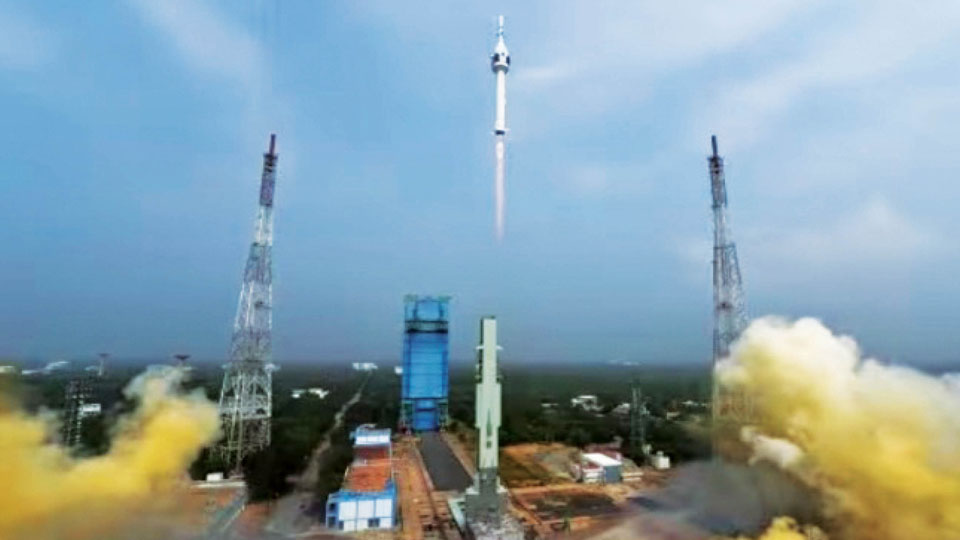New Delhi: The Indian Space Research Organisation’s (ISRO) unmanned test flight for its first human spaceflight mission ‘Gaganyaan’ this morning lifted off from Satish Dhawan Space Centre at Sriharikota, the first landmark in India’s ambitious space mission.
Saturday’s rocket tested the emergency escape system of its crew module, which separated from the thruster and made a soft sea landing about 10 minutes after the launch. This mission was conducted to test the efficiency of the vehicle’s crew escape system, which will be used in case astronauts need to eject in case of an emergency.
“We are very happy to announce the success of the mission. The purpose of the mission was to demonstrate the crew escape system. The vehicle went slightly above the speed of sound before it initiated the crew escape system,” Indian Space Research Organisation S. Somanath said from the mission centre.
“The escape system took the crew module away from the vehicle and subsequent operations including the touch-down at the sea have been very well accomplished,” he added.
Test Vehicle D1 mission was scheduled for a lift-off from the first launch pad at 8 am which was revised to 8.45 am. But just 5 seconds before the launch, the countdown stopped. ISRO identified the cause and successfully pulled off the test at 10 am.
The test vehicle mission is the predecessor to the Gaganyaan programme which aims to send humans into space on a Low Earth Orbit of 400 kms for three days and bring them safely back to Earth. The TV-D1 vehicle used a modified VIKAS engine with a Crew Module and Crew Escape System mounted at its front. It stood at 34.9 meters tall and had a lift-off weight of 44 tonnes. Its structure was a single-walled unpressurised aluminium structure with a simulated thermal protection system.
India will demonstrate its human spaceflight capabilities in a mission called Gaganyaan, scheduled to launch in 2024. The country will set up a space station by 2035 and work on a Venus orbiter as well as a Mars lander.








Recent Comments